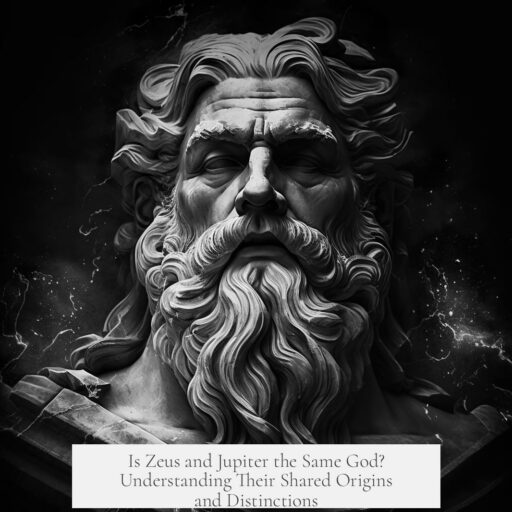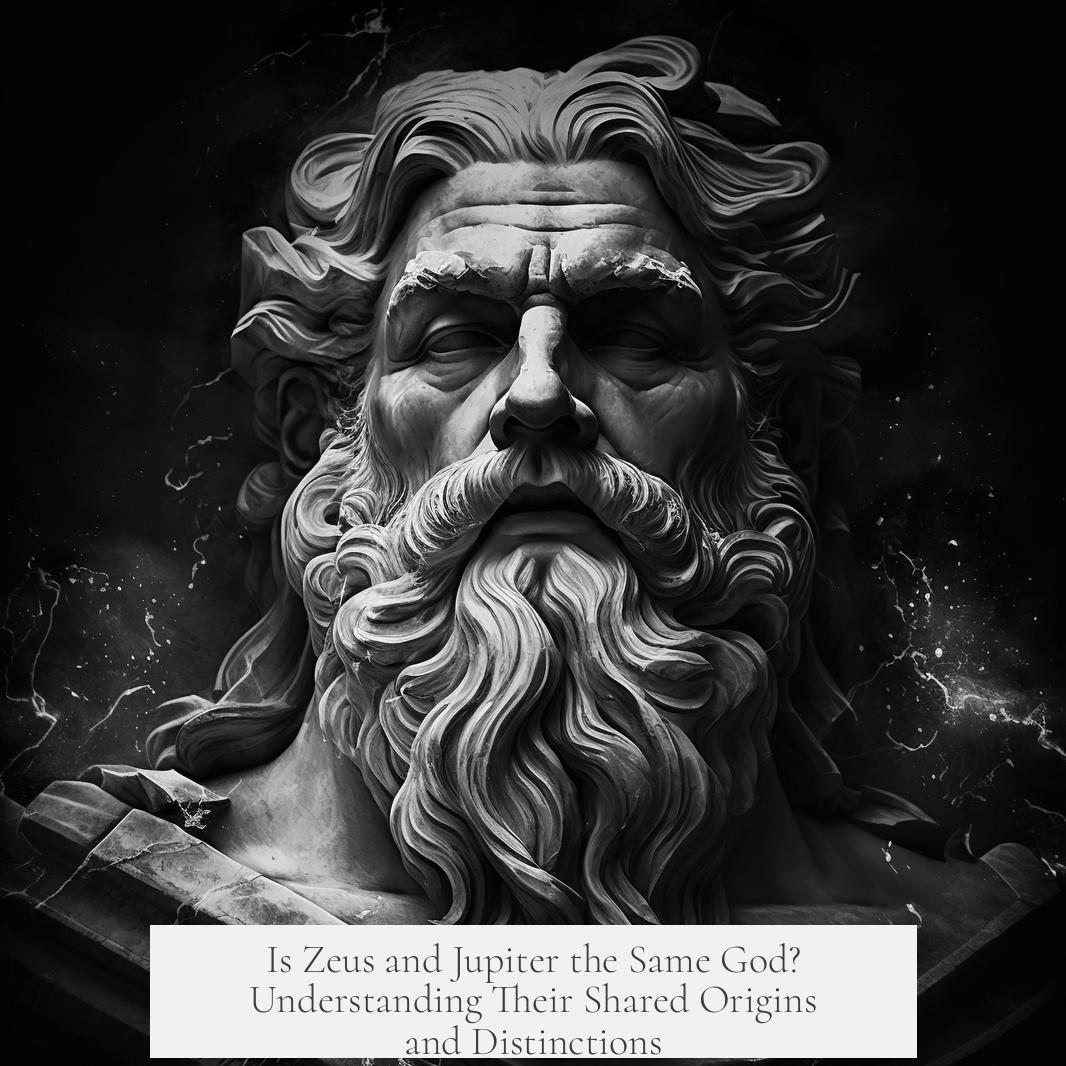Zeus and Jupiter originate from the same Indo-European sky god but are not the same deity. They represent two separate yet related expressions of a shared divine figure. Over time, as cultures migrated and languages evolved, Zeus and Jupiter developed distinct traits though their roots remain closely connected.
Their names reveal this link clearly. Jupiter, also known as Jove Pater, shares an etymological root with Zeus and the Latin word deus, meaning “god” or originally “sky.” This connection extends to other deities like Tyr (Tiw), reflecting a common Proto-Indo-European source for these sky gods.
As ancient peoples spread into western Europe, linguistic and cultural changes caused the identities of Zeus and Jupiter to diverge. They became not identical but parallel figures shaped by different traditions and mythologies. Despite their differences, the two gods retained many similar attributes, such as rulership over the sky and thunder.
Roman expansion played a key role in how these gods were perceived. Roman authorities sought to find local equivalents of their gods to unify the diverse populations of their empire. Greek and Roman pantheons were close enough that Jupiter was often identified with Zeus, reinforcing their similarities and encouraging a blending of their stories and attributes.
The Romans also respected Greek literature which portrayed Zeus powerfully, influencing how Jupiter was understood. This literary adoption blurred distinctions further, merging cultural perceptions of these deities while they remained separate entities in origin.
- Zeus and Jupiter come from a common Proto-Indo-European sky god origin.
- Their names share etymological roots linking them to “god” or “sky.”
- Over time, cultural and linguistic shifts caused their identities to diverge.
- Roman expansion merged their images to unify a diverse empire.
- Greek literature influenced Roman views, increasing their similarities.
Is Zeus and Jupiter the Same God? Exploring the Divine Connection
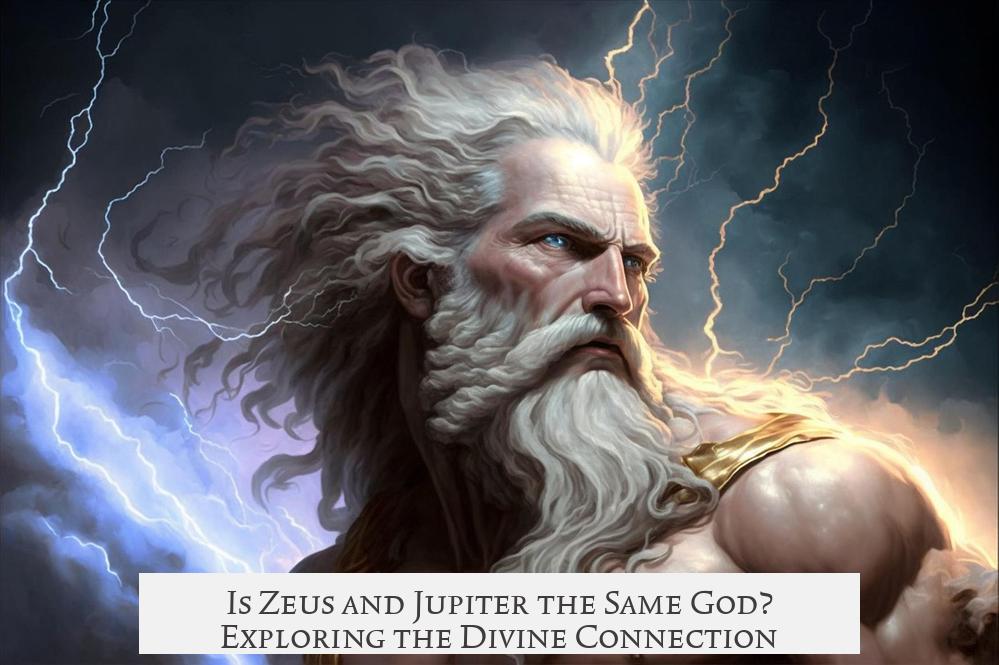
The quick answer? No, Zeus and Jupiter are not the exact same god. But they are like two cousins at a family reunion: related, sharing a common ancestor, and sometimes mistaken for one another. Let’s break down this divine duo’s story, where they came from, and why they often get conflated.
Imagine a proto-Indo-European sky god living many millennia ago—this god is the root of both Zeus and Jupiter. As ancient people migrated, settled, and developed distinct cultures, language and religious traditions evolved. This caused the mighty sky god to split into different manifestations, tailored by different peoples. In this case, we get Zeus in Greece and Jupiter in Rome. They share a heritage, but their identities move in their own directions.
The Etymological Threads That Bind
Ever wonder if names tell tales? Here’s one that certainly does. The name “Jupiter” traces back to “Jove Pater,” which literally means “Father Jove.” Jove is etymologically a cousin to “Zeus”—both derived from a root meaning “sky” or “god.” Adding another twist, “deus,” the Latin word for god, is connected here too, tying into the sky god idea.
This etymological lineage extends beyond just Greece and Rome. Remember Tyr, the Norse god of war and sky? He’s part of this ancient divine family tree too. So, in some sense, Zeus, Jupiter, and Tyr are distant relatives, sharing the sky as their playground and authority.
Why Two Gods Instead of One?
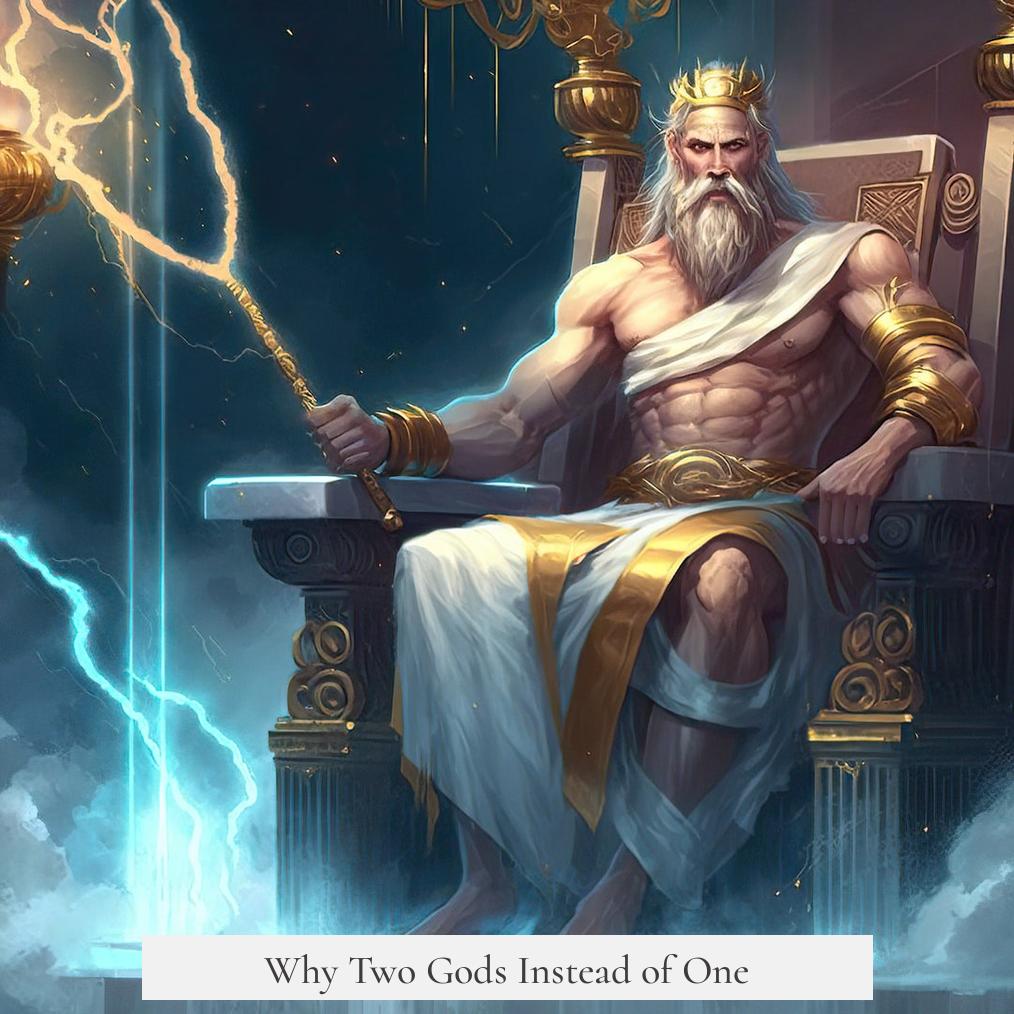
Language drift is the culprit here. As Indo-Europeans spread across Europe, their tongues and tales changed. Their gods adapted accordingly. So, though Zeus and Jupiter stem from the same celestial figure, the gods became distinct, each reflecting unique cultural flavors.
Zeus, for instance, develops rich myths tied to Mount Olympus, lightning bolts, and a stormy temper. Jupiter, on the other hand, acquires qualities fitting Roman values: protector of the state, enforcer of law, and a symbol of Roman power. Both wield thunder, but their stories and roles diverge.
Roman Rome’s View: Blurring the Lines
Now, blend in Rome’s expansionist ambitions, and things get more interesting. The Romans were masters of cultural absorption. They didn’t just conquer territories; they also searched for familiar faces among the gods of the people they ruled. In truth, Romans believed their gods were the only true gods, so recognizing similar gods elsewhere helped them assert dominance—and unity.
Because the Greek and Roman pantheons were close cousins, the Romans found it easy to merge their Jupiter with the Greek Zeus. Greek literature, rich and ancient even by Roman standards, further blurred distinction. Romans borrowed Greek stories wholesale, giving their Jupiter a mythological flavor heavily influenced by Zeus tales.
This cultural fusion made the gods practically interchangeable in the Roman mindset. Whenever a Greek myth winked at Zeus’s thunderbolt, Roman audiences saw Jupiter’s. But scratch the surface, and the differences remain notable, rooted in history, language, and cultural emphasis.
To Summarize: Same Root, Different Paths
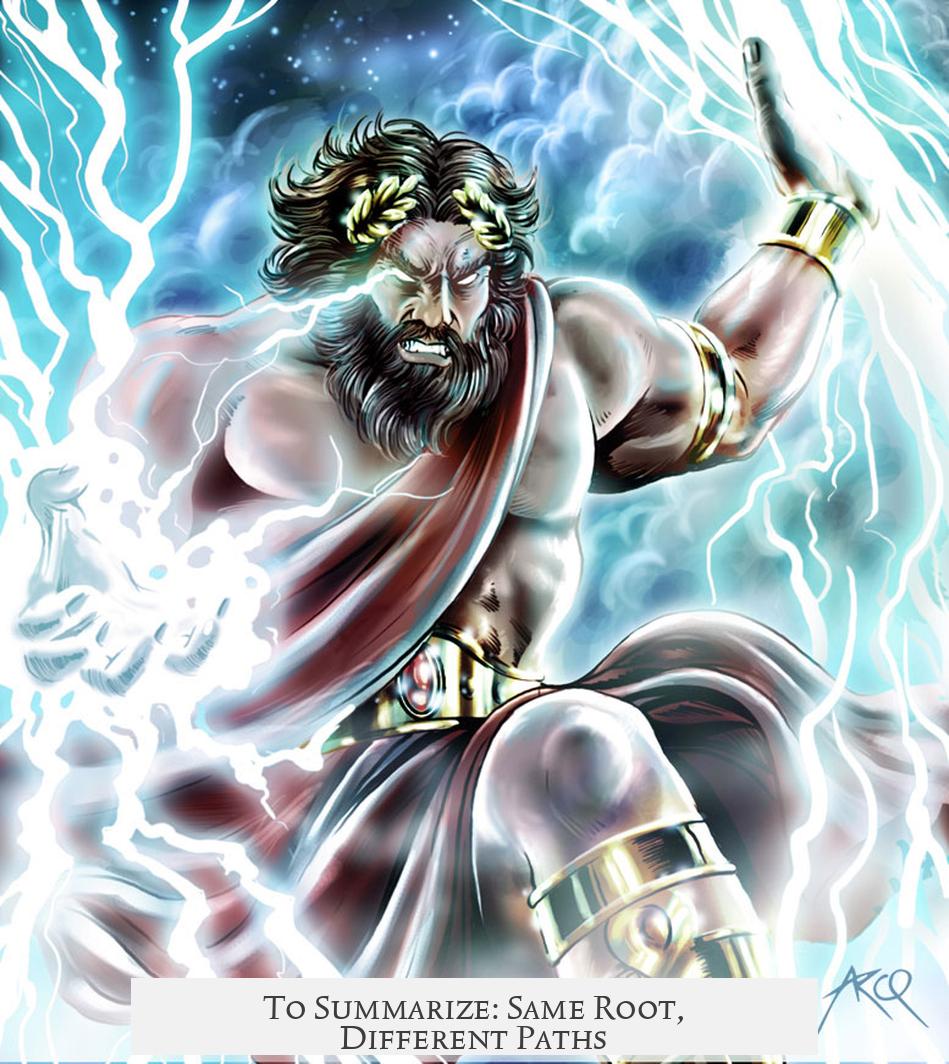
Zeus and Jupiter began as the same sky god but have since drifted apart. Encountering each other again through cultural exchange blurred the differences but didn’t erase them. It’s like two artists starting with the same sketch but painting completely different pictures. Both claim a thunderbolt, but their stories, personalities, and cultural roles are unique.
Why Should You Care? Here’s the Benefit of Understanding This
- Recognizing the distinction enriches your knowledge of mythology and history.
- Understanding how religions and cultures fuse explains modern cultural exchanges.
- It highlights how language shapes beliefs and vice versa—proof that words hold power beyond meaning.
- It sparks curiosity: if the sky god splintered into Zeus, Jupiter, and Tyr, what does that say about how human communities interpret divine forces?
A Story of Unity and Difference
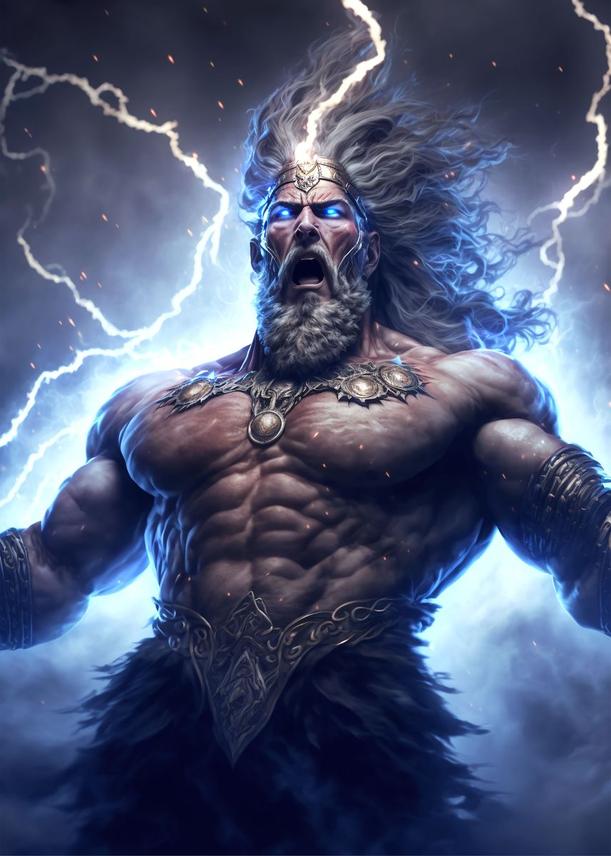
Picture a family reunion long ago, where members share the same ancestry but wear different costumes, speak distinct languages, and celebrate unique traditions. Zeus and Jupiter are those cousins—drawn from the same roots but forever shaped by their journeys through time. The story of these gods is a story of cultural identity, migration, language, and political power wrapped in thunderbolts.
Moving Forward: Practical Tips for Mythology Buffs
- When reading myths, consider the cultural lens. A story about Zeus in Greece may have a twin story about Jupiter in Rome—with variations!
- Don’t assume identical gods are the same. Look for differences in their roles, stories, and symbolism.
- Dive into etymology. Understanding names gives clues about shared origins or divergences.
- Explore other Indo-European pantheons. Discovering links to Norse Tyr or Hindu Dyaus Pitar offers a wider perspective.
In Conclusion
The question “Is Zeus and Jupiter the same god?” invites us into a fascinating exploration of myth, language, and culture. They are two distinct gods born from the same divine ancestor, who over centuries drifted apart while still echoing shared origins. Romans and Greeks embraced each other’s stories, blending identities until Zeus and Jupiter became almost interchangeable in the popular imagination.
But for the curious myth lover, recognizing the distinctions reveals layers of ancient history and cultural exchange. So the next time you hear about Zeus hammering his thunderbolt or Jupiter watching over Rome, remember: two gods, one sky, many stories.
Are Zeus and Jupiter originally the same god?
Yes, Zeus and Jupiter began as the same sky god figure in a proto-Indo-European pantheon. Over time, they evolved differently in Greek and Roman cultures.
How are the names Zeus and Jupiter related?
The names are etymologically linked. “Jove” (from Jupiter) is a cognate of Zeus and connects to “deus,” meaning god or sky.
Why did Zeus and Jupiter become distinct gods?
Migration and cultural shifts caused changes in language and traditions. This led to Zeus and Jupiter developing unique identities despite shared origins.
How did Roman views affect the perception of Jupiter and Zeus?
Romans saw Jupiter as equivalent to Zeus to unify their empire. Greek literature heavily influenced Roman ideas, blending the two gods’ attributes.
Did Romans consider their gods superior to Greek gods?
Romans often claimed their gods were the only true gods but adopted Greek myths about Zeus, which blurred differences between Zeus and Jupiter.
